The ancient city of Athens is one of the most famous and interesting cities in the world. Located in Greece, Athens is known for its many historical landmarks and its role in the development of Western civilization.
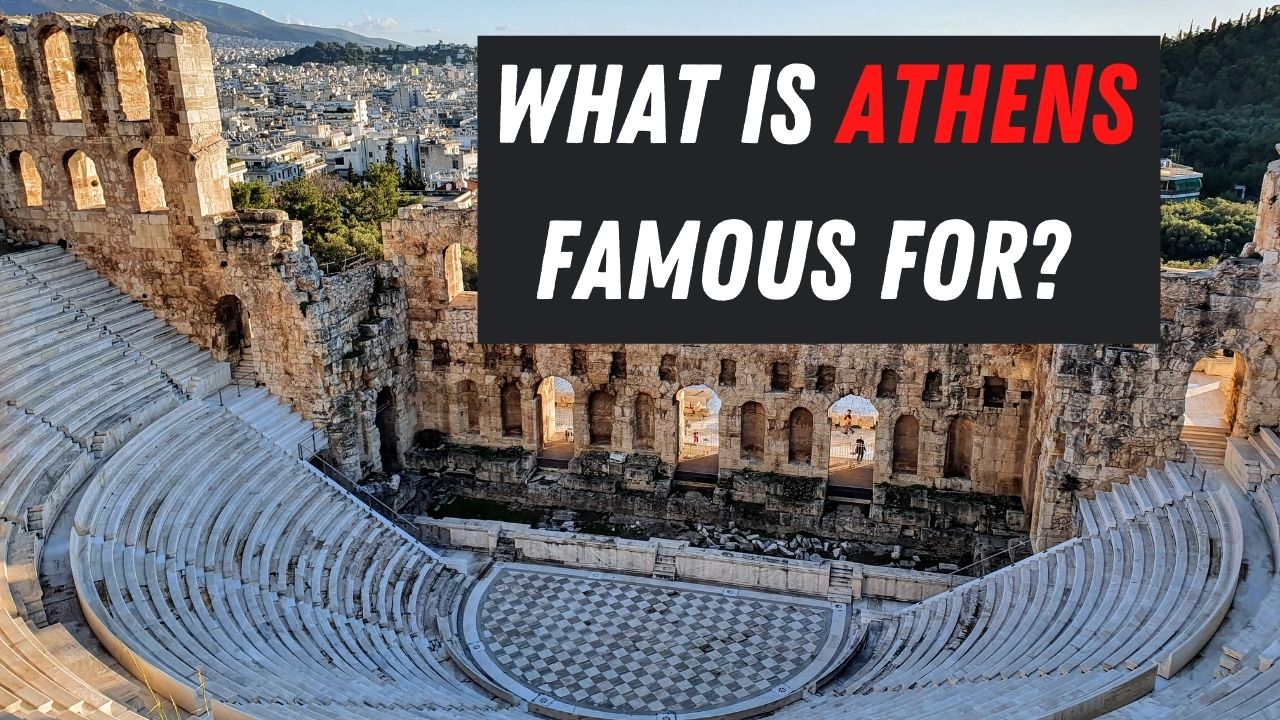
Ancient Athens in Greece
Athens is known to be the birthplace of democracy and the idea that all citizens should have a voice in governing their society. Athens also houses many historic landmarks, such as temples and theatres, which were made by ancient architects during the Classical period.
The city is home to the Acropolis, a UNESCO World Heritage Site, as well as other iconic structures like the Temple of the Olympian Zeus. It's no wonder then, that people from all over the world want to visit Athens at some point on their lives!
What is Athens known for?
Looking for reasons to visit Athens? This guide will take you through what Athens is famous for. Some of these things you may know, others might surprise you!!
The Parthenon and Acropolis
Perhaps the most iconic of all Athens landmarks, the Acropolis of Athens is home to many ancient Greek structures. It is had a strong influence on Western architecture and was named a UNESCO World Heritage Site in 1987.
The Acropolis consists of three main parts: the Parthenon , built for Athena; the Erechtheion , honouring both Athena Polias and Poseidon Erechtheus; and the Propylaea , a monumental entrance.

During the Golden Age of the Ancient Greek Civilization, the Acropolis acted as religious center and fortress of last defense for the inhabitants of Athens. There are a number of structures on top of the Acropolis. This most significant are:
The Parthenon
The famous Parthenon temple was built between 447-432 BC for Athena, Greek goddess of wisdom. It is also known as “Athens' best-known landmark.” The Classical structure, made in Doric order, was dedicated to Athena Polias and has four identical columns on all sides.
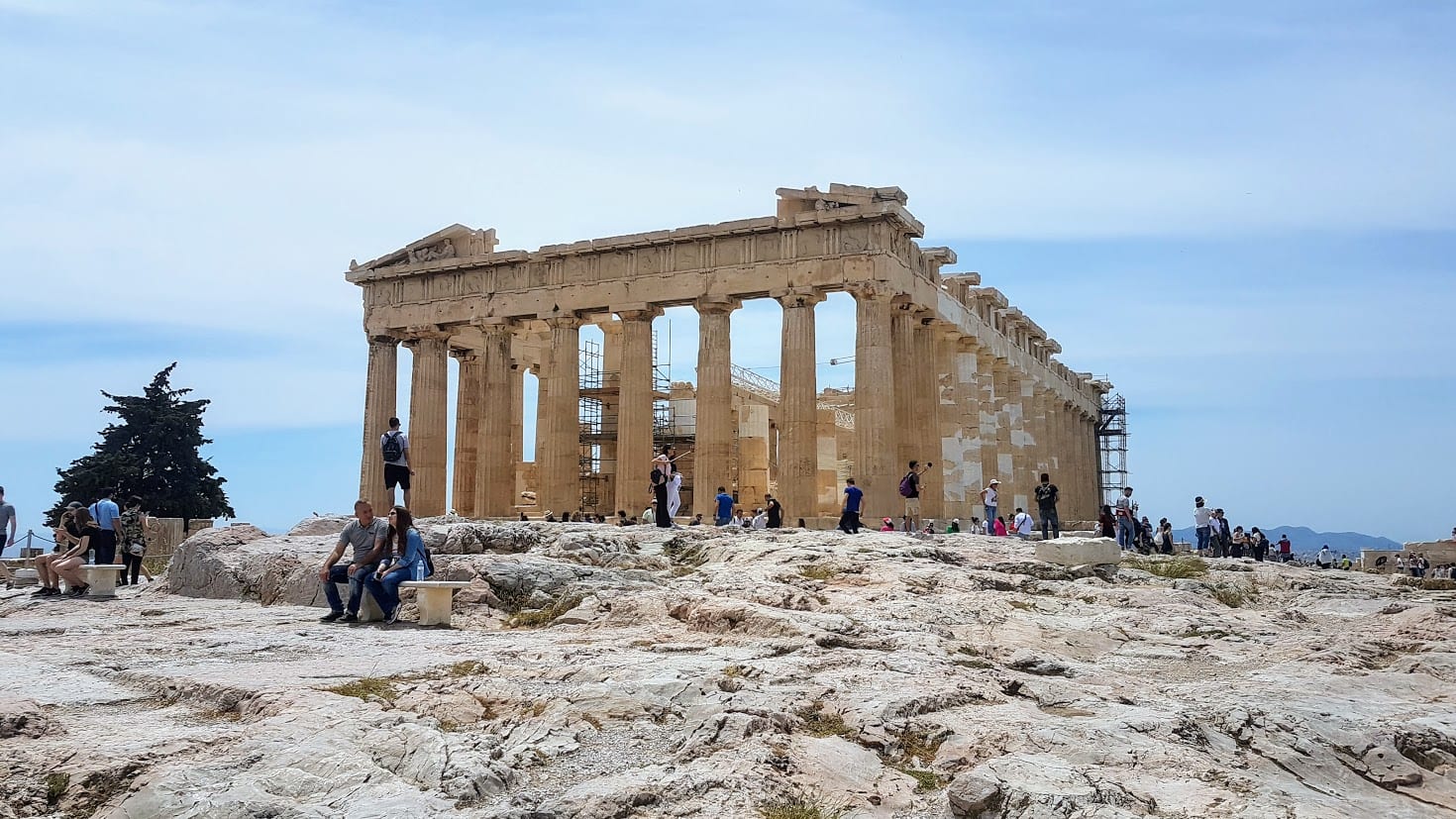
The Erechtheion and Temple of Athena Nike
This temple was built between 421-406 BC to honour Poseidon and Athena. The main structure of the building had six Ionic columns, and it had a caryatid porch with five female figures (known as Caryatids) which supported the roofin the front and in the back.
The Propylaea
The Propylaea was one of several public constructions commissioned by Athenian leader Pericles to restore the Acropolis a generation after the Persian Wars had ended.
Take a look here: Interesting facts about the Acropolis and Parthenon
Other Archaeological Sites of Athens
There was more to the ancient Athens city than the Acropolis though! Surrounding it were various important areas crucial to the everyday lives of ancient Athenians.
These other buildings and monuments in Athens were constructed during the Golden Age of Greece, as well as during the time of Roman rule. Some of the other famous sites in Athens include:
The Ancient Agora
Like many other Greek city states, the Agora (or market) played a central role in daily life for the ancient Greeks of Athens. It was an important place where business deals were made, property was bought and sold, and the citizens of Athens gathered to socialize. The Agora also contained many temples devoted to various gods.
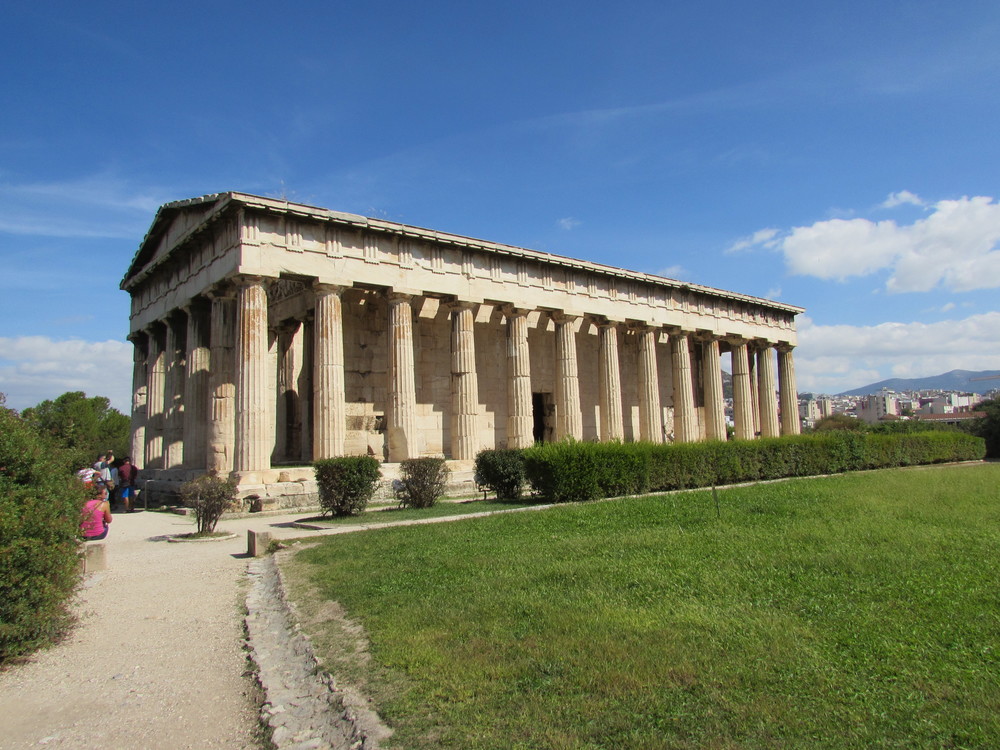
The Ancient Agora is an archaeological site you can visit between the Psiri neighbourhood and Aeropagus Hill. On the site is a temple dedicated to the God Hephaestus – known for being one of the best preserved temples dating back to ancient Greece!
Read more here: Ancient Agora In Athens: Temple of Hephaestus and Stoa of Attalos
The Temple of Olympian Zeus
The breathtaking temple dedicated to the Olympian Zeus actually predates the Parthenon, as work began on it in 6th century BC. It was only completed six centuries later during the reign of the Roman Emperor Hadrian (of Hadrian's Wall fame in the UK). After all that effort though, it only stood fully complete for a couple of hundred years before being partly destroyed in 267 AD.

The Temple was Olympian in scale (if you'll pardon the pun), as it contained over 104 huge columns. Today, some restoration work is being carried out to secure the remaining columns.
Kerameikos Cemetery
The significance of Kerameikos is often overlooked. While the Acropolis was Athens' religious center, Kerameikos is one of its most important historical sites. It was here that citizens of Athens were buried, and as people approached the walls of ancient Athens, they would have passed by the tombs and monuments of heroes.
If the word Kerameikos sounds familiar it is where the English word Ceramic comes from. Kerameikos area got its name, because in addition to the cemetery, this was where potters produced the famous Attic vases you see in museums in Greece and around the world.
Read more here: Kerameikos Archaeological Site and Museum in Athens
Hadrian's Gate
This is another important remnant of the Roman Empire period of Athens' history. Built in 131 AD for the Emperor Hadrian , this triumphal arch of Hadrian was actually part of a larger system that included walls and gates around the entire city of Athens.
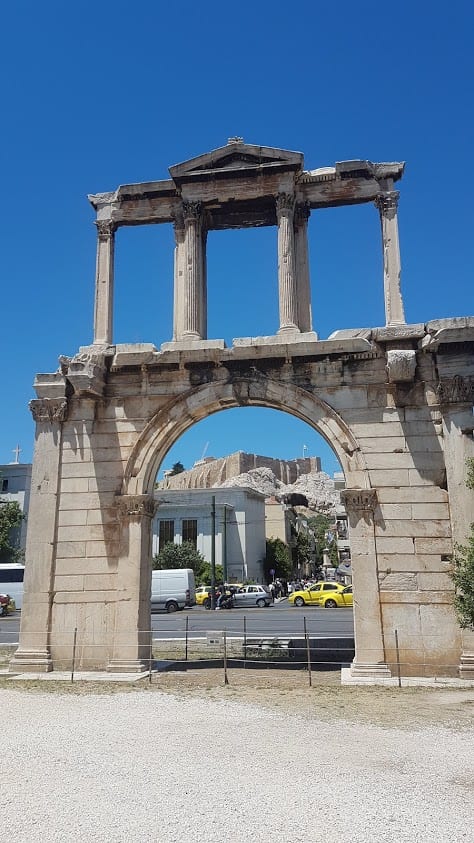
The Gate is located outside of the Temple of Olympian Zeus, and you can see the Acropolis if you look through the arch.
Odeon of Herodes Atticus
We come to one of the most famous and best preserved theatres in the Greek capital Athens. The Odeon of Herodes Atticus was built in 161 AD and is one of Athens' most famous amphitheaters.
Even today, you can visit for performances held via the Athens and Epidaurus festival. Well known modern musicians and artists who have performed at the Odeon of Herodes Atticus include Luciano Pavarotti, Diana Ross, and Elton John. Occasionally, art displays are also held inside.
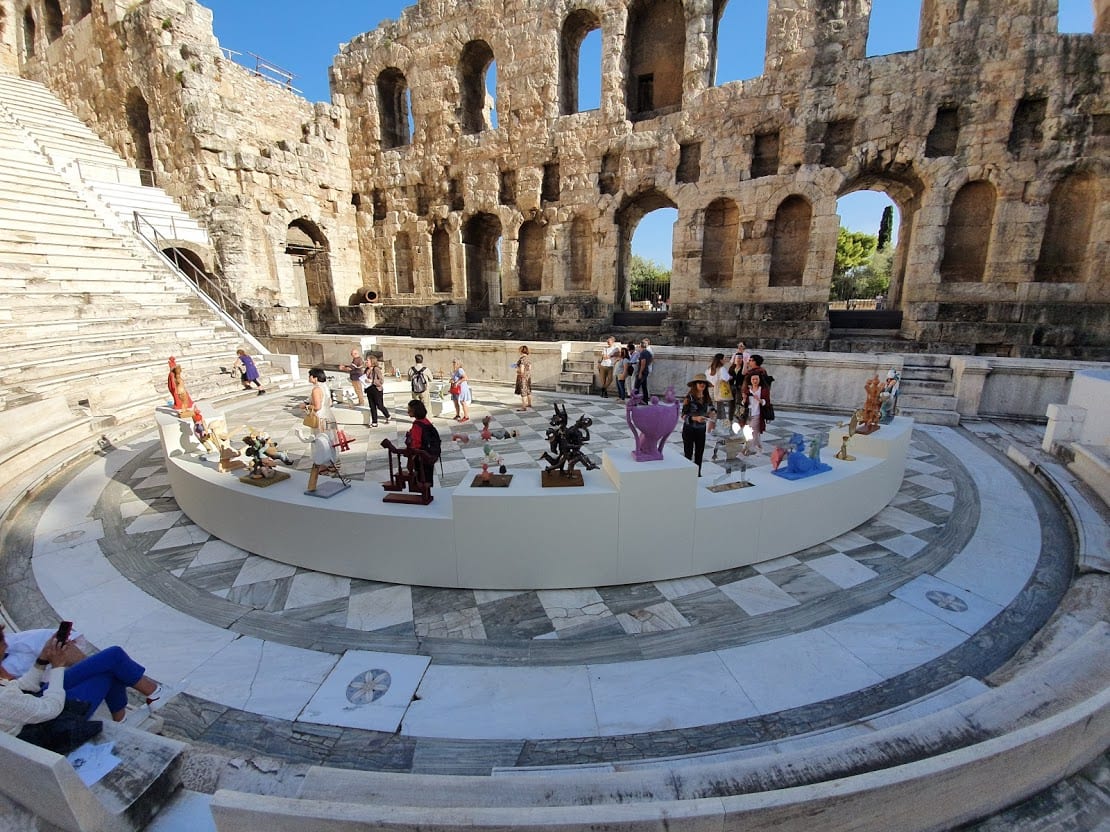
The Odeon Herodes Atticus is on the south-west slope of Acropolis Hill.
Democracy
One of the things that Athens is most famous for, is being the place where democracy first began. The Athenians invented democracy in the 6th century BC.
The basic idea behind democracy was that eligible citizens should have equal say in the laws. Eligible citizens directly voted on the laws in the Agora (the central public space of Athens).
Using this direct democracy system, citizens were able to vote on city officials and make decisions about the governing of their society. While Athenian democracy wasn't the only one (many ancient Greek cities operated a form of democracy), it is the most famous due to the city keeping the most documented history and records.
Greek Philosophers Socrates and Plato studied what it means to be part of a fair society which could operate under democratic principles. More on Greek philosophy later in this guide to what is Athens famous for!
Gods, Goddesses, and Heroes
The origins of Europe's oldest capital city stretch so far back in time, that it's creation is part of Greek Mythology!
According to Greek Myths, the city was named after the Goddess Athena after Athena and Poseidon both presented the inhabitants gifts in order to become the city's patron. Poseidon gifted the city some water, but it tasted slightly salty. The Greek Goddess Athena donated an olive tree, and thus the city of Athens was named after her.
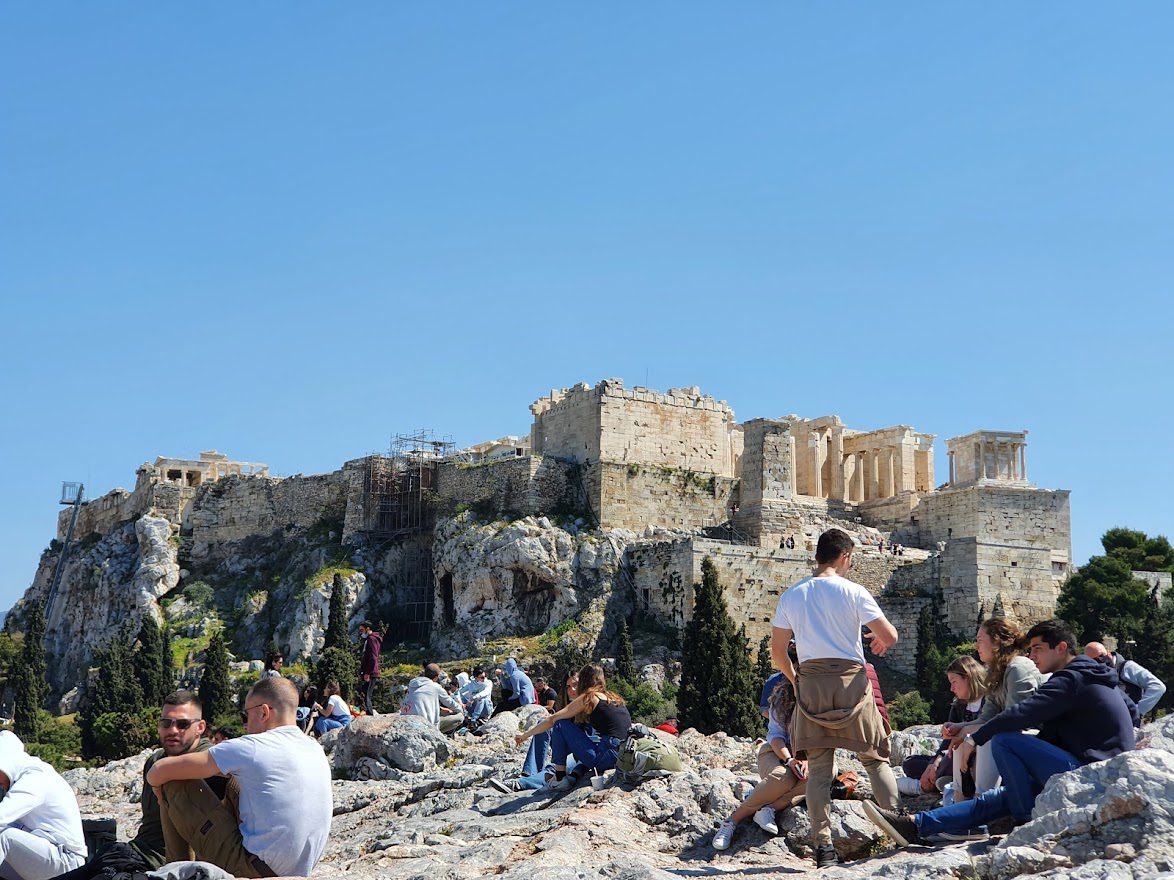
Another myth connecting the city with the Greek Gods, concerns Ares the God of War. He was put on trial by the other Greek Gods on a hill between the Acropolis and Pynx Hill. This small rocky place was then name after him – Areopagus Hill.
In Ancient Athens, this hill was the seat of the Athenian Criminal Court, and trials were held here. It is also the place where the Apostle Paul gave a sermon – another thing for which Athens is famous!
Philosophy
Athens, Greece is the birthplace of philosophy and some of the oldest and most famous schools can be found here. Some of the most well known philosophers from the ancient world studied in Athens, and their thoughts and writings still influence the Western world.
For example, after studying at Plato's academy, Aristotle went on to teach Alexander the Great's son before returning to Athens. The Academy of Plato was founded in 397 BC and its site was rediscovered in the 20th century!

Take a look here for philosophy quotes, including some from ancient Greece.
Museums
There are many, many amazing museums in Athens to visit! There are art galleries, natural history museums, and even a museum dedicated to the Olympics Games.
During your time in Athens, you can visit The National Archaeological Museum of Athens and the Acropolis Museum. Inside the Acropolis Museum, you can see some of the Parthenon Marbles which once adorned the famous Parthenon temple.

Which brings us on to our next subject…
Elgin Marbles / Parthenon Marbles
Athens is certainly well known for the Parthenon Marbles / Elgin Marbles controversy!
The Parthenon Marbles are a set of sculptures that decorated the Parthenon temple in Ancient Greece. The Greeks built this incredible structure between 447 BC and 432 BC to honour their Goddess Athena. These magnificent carvings were eventually taken by Thomas Bruce, the 7th Earl of Elgin and British Ambassador to the Ottoman Empire in 1801.
He claimed that he was given permission to take them, but this has been disputed by the Greek Government ever since. The debate about whether these marbles should be returned continues to rage on today! (Actually, there's no debate really – they should be returned!).
Markets
Athens has a number of markets, the most famous of which is the Monastiraki Flea Market area in central Athens where you can buy everything from jewellery and souvenirs to cheese and olives!

Visit on a Sunday, and you'll see more stalls selling antiques and intriguing bric-a-brac.
Greek Cuisine
No trip to Athens is complete without going into a Greek tavern aka restaurant! The food is delicious and healthy thanks to the Mediterranean cuisine which includes plenty of fresh, locally produced foods.
The first thing that comes to mind when thinking about Greek restaurants are probably Moussaka or Souvlaki – both of which are available in Athens! Some other traditional Greek cuisine and authentic must eat foods that Athens is known for include: Saganaki, Tzatziki, Kolokythokeftedes – Courgette Balls, Choriatiki, Olives & Olive Oil, and Bougatsa.
Nightlife
Athens ranks very highly for interesting nightlife which starts late and finishes sometime the following morning! Athens city centre has many bars and clubs to choose from , so you won't be stuck for somewhere to go.
You'll find bars dotted around all areas of the city, but some are situated in more central areas such as Monastiraki Square and Gazi neighbourhood.
The Origin of the Marathon
The Marathon is an event in the modern Olympics, but did you know that Athens is actually where it all began?

The first recorded marathon (a run of approximately 42.195 km) was when the Greek soldier Pheidippides ran from Marathon to Athens to inform citizens of the Greek victory against Persian forces in 490 BC.
The Authentic Athens Marathon is still run every year in November. Are you up for the challenge?!
Modern Olympic Games
The Modern Olympic Games takes its influence from the ancient Olympics Games. These were athletic games held in Olympia, a sanctuary site dedicated to the Olympian Gods and each city state would send athletes to compete.
The games took place every four years and were very important for Ancient Greece – it wasn't just about athletics! In fact, the Olympic Games included combat sports such as wrestling and boxing, chariot racing, horseracing, long jump and javelin throwing.
It was also a cultural and religious festival, where artists would display their works. During the ancient Olympics, a truce would be held between the rival city states where athletes, artists and spectators could travel safely to attend the games. Visitors would make a sacrifice to Zeus at Olympia's altar in thanks for their safe arrival at the games.
When the Olympics was revived in Athens in 1896, Greeks won 47 medals, perhaps the most important being the gold medal won by Spiridon Louis in the Marathon. We can only imagine the cheers that must have gone out for him in the then renovated Panathenaic Stadium in Athens!
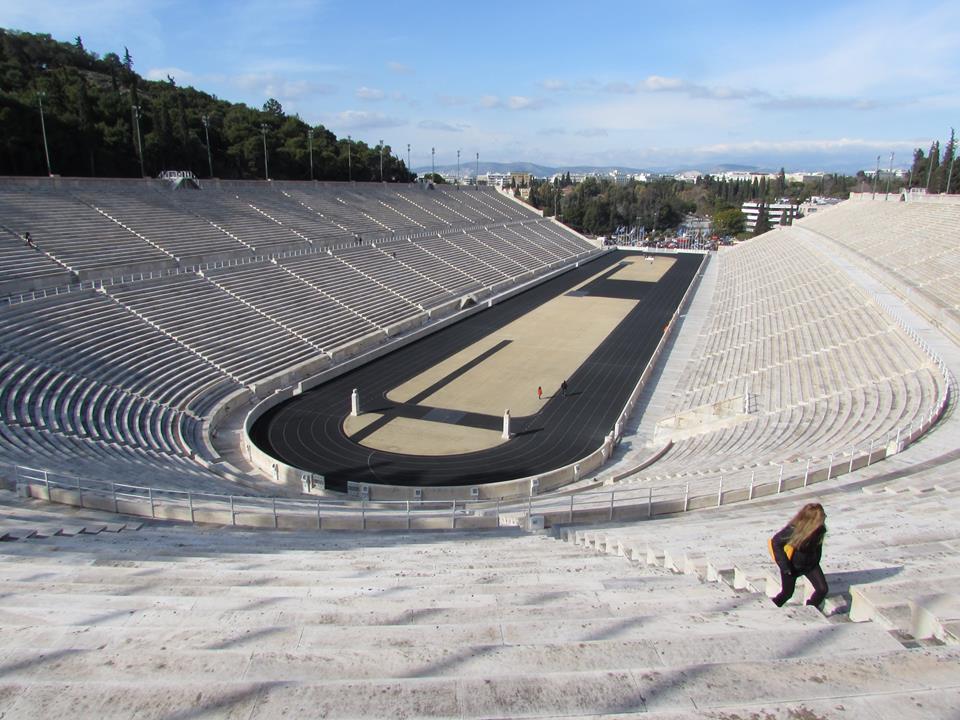
Famous People from Athens
As you might expect from such an important city on the European mainland, Athens has been the birthplace and home for many influential people throughout the ages. Some of the most famous people in from ancient Athens have included:
- Solon
- Cleisthenes
- Plato
- Pericles
- Socrates
- Sophocles
- Aeschylus
- Themistocles
- Euripides
What is Athens Greece known for? FAQ
Readers who want to find out more about Athens might be interested in this article on interesting facts about Athens. Below, are some commonly asked questions to do with what is Athens famous for.
What is Athens most well known for?
The most well-known thing about Athens is that it is the birthplace of Western civilization. The city is considered to be the birthplace of democracy, and many of the intellectual and artistic ideas from Classical Greece originated there.
Why is Athens so popular?
Athens is a popular destination with people interested in the history of the ancient world of Greece as well as its modern culture. Athens is also a good starting point to take ferries out to the Greek islands!
What are 3 facts about Athens?
Three interesting facts about Athens are that the ancient Olympic Games were never held there, that it is the oldest capital city in Europe, and that the Venetians blew up the Parthenon by firing a cannon at it!
Where is Athens in Greece?
Athens is located in the south-east of mainland Greece in the Attica region.
What was Athens known for – wrapping up
Hopefully, this guide to what is Athens known for has helped you! Do you want to visit Athens and would like some idea of what itinerary to plan? Take a look at the following blog posts:
-
Is Athens worth visiting? Yes… and here’s why
-
Is Athens Safe To Visit? – An insider’s guide to visiting Athens
-
How Many Days In Athens Greece?
-
Best Time to Visit Athens Greece
-
Athens in a day – The Best 1 Day Athens Itinerary
-
2 Days in Athens Itinerary
-
Athens 3 Day Itinerary – What to do in Athens in 3 days
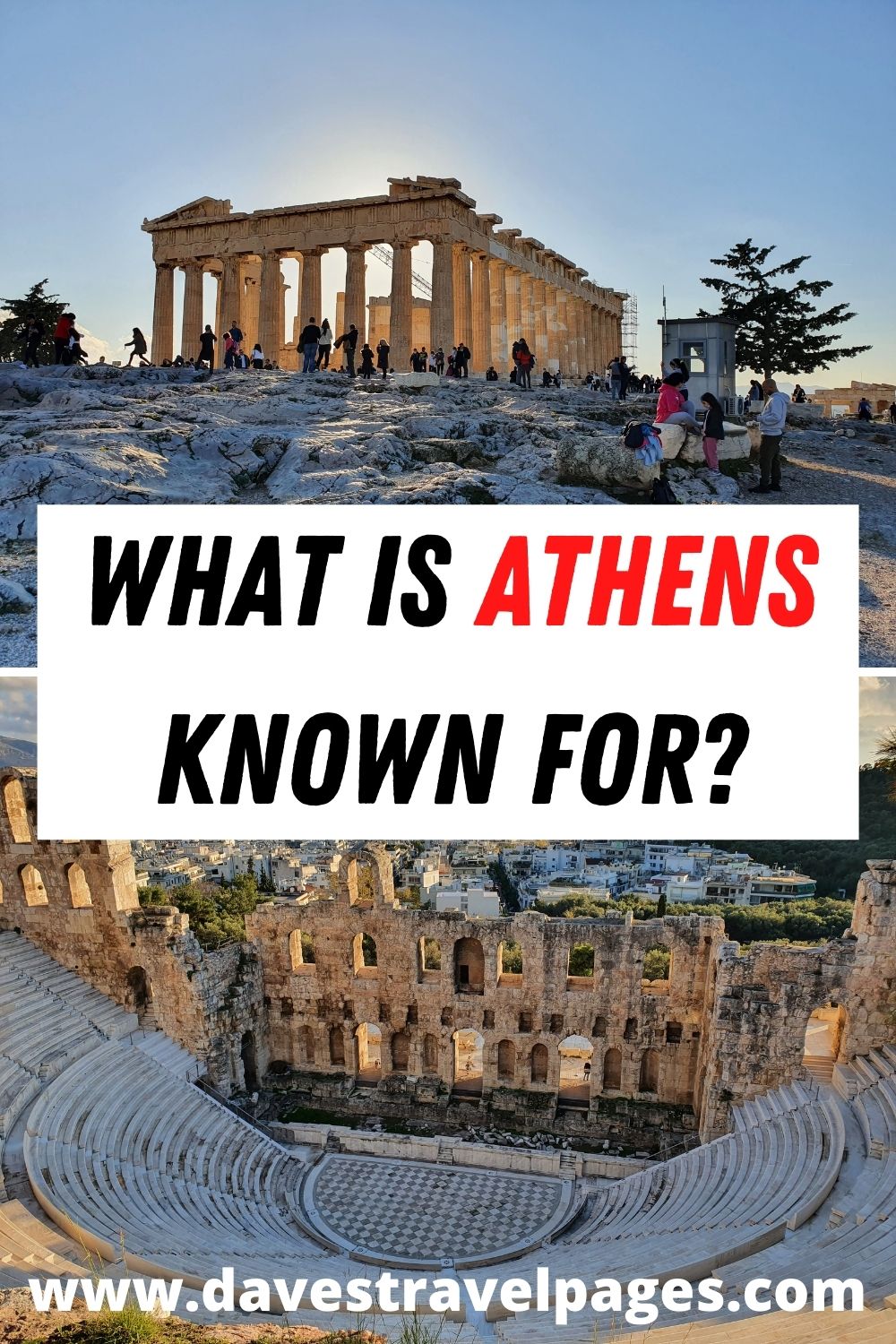
Have any questions Athens in the Attica region of Greece? Did you find out an interesting facts about Athens not mentioned here that you think should be? Leave a comment below, and I'll get back to you!
Athens Travel Guide
Planning a trip to Athens Greece? Here's a few posts that might be interesting to read:
- Changing of the Guard on Syntagma Square
- How to get from Athens International Airport to centre of Athens
- Public transport in Greece
 – Dave Briggs
– Dave BriggsDave is a travel writer based in Athens, Greece. As well as creating this guide on what is Athens famous for, he's also written hundreds more travel guides to destinations all over Greece. Let's stay connected – Follow Dave on social media for travel inspiration from Greece and beyond: